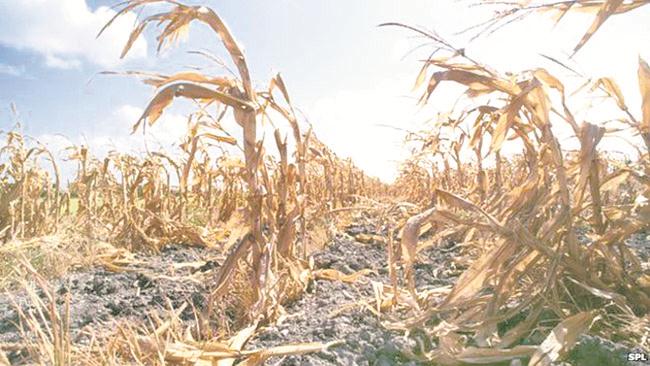-
Tips for becoming a good boxer - November 6, 2020
-
7 expert tips for making your hens night a memorable one - November 6, 2020
-
5 reasons to host your Christmas party on a cruise boat - November 6, 2020
-
What to do when you’re charged with a crime - November 6, 2020
-
Should you get one or multiple dogs? Here’s all you need to know - November 3, 2020
-
A Guide: How to Build Your Very Own Magic Mirror - February 14, 2019
-
Our Top Inspirational Baseball Stars - November 24, 2018
-
Five Tech Tools That Will Help You Turn Your Blog into a Business - November 24, 2018
-
How to Indulge on Vacation without Expanding Your Waist - November 9, 2018
-
5 Strategies for Businesses to Appeal to Today’s Increasingly Mobile-Crazed Customers - November 9, 2018
Climate change could lead to global food shortages in decades to come
Tim Benton, well-known UK Champion for Global Food Security said, “It is likely that the effects of climate change will be felt most strongly through the increasing frequency of extreme weather events such as droughts, heat waves and floods and their impact on the production and distribution of food – something we nearly take for granted”.
Advertisement
The UK, which imports around 40% of food, was less directly exposed to production shocks as more consumption of processed food meant the price of basic commodities was not so significant and the country was richer, the report said. But the reality is that climate change brings more extreme weather – at both ends of the spectrum – and according to experts in the United Kingdom, several countries are at risk of “food shocks” because of it.
With the world’s population set to rise to nine billion by 2050 from 7.3 billion today, food production will need to increase by more than 60 percent and climate-linked market disruptions could lead to civil unrest, the report, published on Friday, said. They recommended countries work to make markets more transparent, build up strategic crop storages and understand better the risks they face. New technologies and globalization have ensured that the world food system has become more efficient.
Other scientific studies have suggested that increased greenhouse gas emission mostly from the burning of fossil fuels will reduce the availability of some vegetables, fruits and seafood varieties, cause others to lose their taste and make some food crops less nutritious.
“The food system is increasingly under pressure because demand is growing and our ability to supply it is much more constrained”.
“The climate is changing and weather records are being broken all the time”.
The report calls for a range of recommendations to improve the system’s resilience, including creating worldwide contingency plans, developing better modeling methods to accurately predict the effects of production shocks and identifying global trading “pinch points” in order to minimize them.
While wealthier nations might be somewhat insulated from the direct impact of such food shocks, it could indirectly be extremely costly.
Now researchers from the US and the UK have analysed the chances of extreme weather events causing these types of food shocks as the world warms over the coming century.
Major risks that can affect food production include a surge in the price of oil leading to increased food costs.
Advertisement
Report co-author Dr Aled Jones, who is also director of the Global Sustainability Institute at Anglia Ruskin University, said governments needed to step up efforts to avoid “catastrophic” impacts from climate change.





























